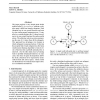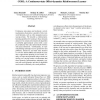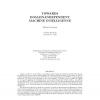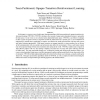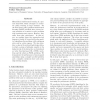47 search results - page 7 / 10 » Model-Based Reinforcement Learning in a Complex Domain |
111
click to vote
ICML
2003
IEEE
16 years 3 months ago
2003
IEEE
The paper explores a very simple agent design method called Q-decomposition, wherein a complex agent is built from simpler subagents. Each subagent has its own reward function and...
139
Voted
UAI
2008
15 years 4 months ago
2008
Continuous state spaces and stochastic, switching dynamics characterize a number of rich, realworld domains, such as robot navigation across varying terrain. We describe a reinfor...
126
Voted
ICCS
1993
Springer
15 years 6 months ago
1993
Springer
Adaptive predictive search (APS), is a learning system framework, which given little initial domain knowledge, increases its decision-making abilities in complex problems domains....
117
Voted
AGENTS
1999
Springer
15 years 7 months ago
1999
Springer
In this paper, we present a novel multi-agent learning paradigm called team-partitioned, opaque-transition reinforcement learning (TPOT-RL). TPOT-RL introduces the concept of usin...
111
click to vote
ICML
2003
IEEE
16 years 3 months ago
2003
IEEE
Hierarchical reinforcement learning is a general framework which attempts to accelerate policy learning in large domains. On the other hand, policy gradient reinforcement learning...
